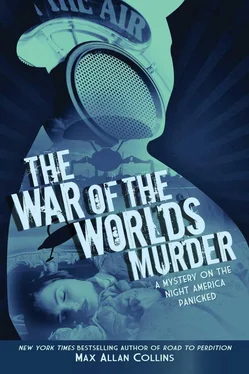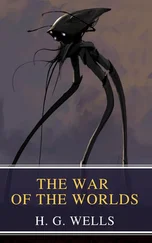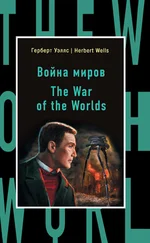Max Collins - The War of the Worlds Murder
Здесь есть возможность читать онлайн «Max Collins - The War of the Worlds Murder» весь текст электронной книги совершенно бесплатно (целиком полную версию без сокращений). В некоторых случаях можно слушать аудио, скачать через торрент в формате fb2 и присутствует краткое содержание. Жанр: Исторический детектив, на английском языке. Описание произведения, (предисловие) а так же отзывы посетителей доступны на портале библиотеки ЛибКат.
- Название:The War of the Worlds Murder
- Автор:
- Жанр:
- Год:неизвестен
- ISBN:нет данных
- Рейтинг книги:5 / 5. Голосов: 1
-
Избранное:Добавить в избранное
- Отзывы:
-
Ваша оценка:
- 100
- 1
- 2
- 3
- 4
- 5
The War of the Worlds Murder: краткое содержание, описание и аннотация
Предлагаем к чтению аннотацию, описание, краткое содержание или предисловие (зависит от того, что написал сам автор книги «The War of the Worlds Murder»). Если вы не нашли необходимую информацию о книге — напишите в комментариях, мы постараемся отыскать её.
The War of the Worlds Murder — читать онлайн бесплатно полную книгу (весь текст) целиком
Ниже представлен текст книги, разбитый по страницам. Система сохранения места последней прочитанной страницы, позволяет с удобством читать онлайн бесплатно книгу «The War of the Worlds Murder», без необходимости каждый раз заново искать на чём Вы остановились. Поставьте закладку, и сможете в любой момент перейти на страницу, на которой закончили чтение.
Интервал:
Закладка:
The man stood with folded arms and hooded eyes, smiling very gently, as Welles railed on about censorship and interference. The well-groomed scarecrow faced the bear of a man, arms hurled in the air, snorting his rage.
This went on for a good two minutes, concluding with, “David, the sounds those creatures make are vital to the performance, and if you insist on cutting them, I reserve the right to have my understudy take my role.”
The executive-his name, Gibson later learned, was Davidson Taylor-replied gently, in a voice touched with a cultured Southern accent.
“Orson, I remain your biggest fan. I have been your creative cheerleader from the very beginning, as you well know. And I think you and Howard Koch and Paul have done a remarkable job on what began as one of our weakest Mercury offerings.”
Somewhat placated, Welles said, “Thank you,” but his chin was up, defensively.
“But the network people above me feel you’ve stepped over the line here-we have another list of name changes for these real places, and there can be no compromise where that tasteless creature sound effect is concerned. It’s out.”
Welles reddened. “You’re willing to go on the air without me?”
With a sorrowful shrug, Taylor said, “Most reluctantly, yes.”
Welles put his face in Taylor’s, though the exec did not flinch. “I’ll be god damned if I’ll let the CBS bureaucrats run me off my own goddamned show! I will be performing tonight-directing and performing, as usual. Is…that…understood? ”
Taylor nodded solemnly. “Yes, Orson.”
“Good.” Welles exited, head high, as if he had just won the argument. Gibson saw Taylor smile to himself and resume his seat at the desk, where a clipboard waited.
As Welles and Gibson returned to the studio floor, Herrmann was directing his fine musicians in a rendition of “Stardust” the likes of which the world had not heard before: tempo shifted as emotions swelled. Gibson found it quite remarkable, and glanced toward Welles to say something complimentary when he noticed the babyish face was contorting to a scowl.
“Benny!” Orson howled. “Benny! Mister Her muhn!”
The orchestra skidded to a stop, and the owlish man turned on his podium and showed Welles a bite-of-grapefruit expression.
“And what’s wrong this time?” Herrmann demanded, as he left the musicians behind to clomp over and confront the director. He planted himself two inches from Welles, fists on his hips. “That piece-of-shit song has never before been played so beautifully!”
Welles’s voice softened. “My dear Benny-you are entirely right.”
With a sigh of triumph, Herrmann nodded, and began to return to his post; but before he could, a long-fingered white hand dropped on his shoulder and clutched.
In the conductor’s ear, Welles whispered, “It’s not meant to be a symphony, Benny-it’s dance music. Mundane, unimaginative, and quite run of the mill.”
Herrmann whirled, and gestured to himself, as if wounded, the baton like a weapon, ready. “You ask this of me? To be run of the mill? You, who always speak of excellence?”
Paul Stewart came over and joined the fray. “Orson’s right, Benny-it’s supposed to be some lousy two-bit dance band playing in a second-rate hotel ballroom. Gotta be like this…”
And Stewart began to snap his fingers, to demonstrate the steady uninspiring tempo.
Herrmann’s close-set eyes widened, an effect magnified by the thick lenses of his glasses. He thrust the baton at Stewart, and glared at Welles. “Then one of you bastards conduct it!”
Stewart smirked humorlessly at Welles, who nodded in a deferential fashion.
Baton in hand, Paul Stewart walked to the small podium next to Herrmann’s piano, and looked out at the musicians and gave them the downbeat. The musicians understood immediately what was required, and a steady, substandard rendition of “Stardust” followed.
Herrmann watched agape. Welles, arms folded, hid a smile behind a hand. Several measures in, Stewart stopped, stepped down and returned the baton to the conductor.
“Now that’s how to do it!” Stewart said.
Herrmann, crestfallen, turned to Welles, who said, “We are telling a story, Benny. You are an actor in that story. You must play the leader of a mediocre danceband.”
Herrmann swallowed his dignity and returned to the small podium and tried again. Perfect-perfectly mediocre.
When Herrmann dejectedly returned, he said to Welles and Stewart, standing side by side, “Is that bad enough to suit you?”
Stewart nodded and said, “Exactly right.”
Welles said, “For a musical genius like you, Benny, and I know this is a sacrifice.”
Herrmann pouted. “They were trying to make me look bad,” he said, apparently meaning the musicians allowing Paul Stewart to show him up. “I’ve known it all along…all along….”
Welles frowned. “Known what, Benny?”
Herrmann sneaked a dark look at his players, then turned and softly said, “There’s a strong fascist element in the woodwinds….”
Again Orson hid a smile behind his hand, as he seemed to nod gravely, saying, “We all have much to contend with.”
What followed was a stop-and-start rehearsal, paying no attention to the radio-driven demands of the clock. Welles was fine-tuning the broadcast, and he was up and down off his podium, helping actors with lines, conferring with Ora about sound effects, cajoling Herrmann to continue to do second-rate renditions of “Stardust” and “La Cumparasita.”
Seated not in the control room but in a chair near the sound-effects station, Gibson watched Orson Welles whip into shape what had been a decidedly lackluster production. Welles alternated between charm and martyrdom, the latter state expressed through periodic ravings and rantings about the treachery, ignorance, sloth, indifference, incompetence and “downright sabotage!” that surrounded him.
Herrmann smashed three batons. Welles tossed his script in the air half a dozen times, and several actors did the same, albeit with less frequence. Doors slammed. Lines were rewritten on the fly in a frenzy of revision, Koch frequently emerging from the control booth for a quick line rewrite.
Miss Holliday showed up from the Mercury Theatre around two o’clock, with arms filled with bulging paperbags from which milkshakes and sandwiches were dispensed and gobbled, as if the passengers and crew of the Titanic were trying to get in one final meal just as the ship was going down.
By about three, as the show began really taking shape, a palpable sense of excitement pervaded the studio-as one of the participants would later say, it was like “a strange fever…part childish mischief, part professional zeal.”
Two more run-throughs were conducted by Welles-and “conducted” was the word-with little or no thought to timing, occasional bathroom and/or smoking breaks, and little one-on-one sessions between Welles and this or that actor or with Herrmann or Ora.
By six-fifteen the maestro of melodrama was ready to conduct the so-called “dress rehearsal,” though of course costumes for a radio show were not an issue. The timing of the piece, however, was, and at his post in the control booth, Paul Stewart was hunkered over his script with stopwatch in hand.
Jack Houseman, visible in the main control room window next to Howard Koch, waited until the end of the dress rehearsal had been reached-it was twenty-some past seven, with the broadcast looming at eight-before seeking Welles out on the studio floor.
Welles, lighting up a cigar, had met Gibson midway-they were actually in the MICROPHONE AREA-after finally reaching the end of the script. Gibson was telling his host how much he felt the piece had been improved, through the heightened realism of the news bulletins, when a grave-faced Houseman stepped up.
Читать дальшеИнтервал:
Закладка:
Похожие книги на «The War of the Worlds Murder»
Представляем Вашему вниманию похожие книги на «The War of the Worlds Murder» списком для выбора. Мы отобрали схожую по названию и смыслу литературу в надежде предоставить читателям больше вариантов отыскать новые, интересные, ещё непрочитанные произведения.
Обсуждение, отзывы о книге «The War of the Worlds Murder» и просто собственные мнения читателей. Оставьте ваши комментарии, напишите, что Вы думаете о произведении, его смысле или главных героях. Укажите что конкретно понравилось, а что нет, и почему Вы так считаете.

![Герберт Уэллс - The War of the Worlds [С англо-русским словарем]](/books/26611/gerbert-uells-the-war-of-the-worlds-s-anglo-thumb.webp)










